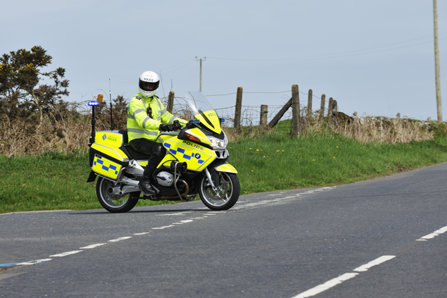Scotland’s Drug Fatality Rate

Scotland’s overdose death rate was 27% higher in 2018 than it was in 2017. It was the highest it’s been since reporting began in 1996. Drug overdose deaths in Scotland are so high that they even overtook alcohol-related deaths, a rare event in any country. In 2019, 1,187 Scots died from drug overdoses, compared to 1,136 alcohol-related deaths in 2018.
On a per-capita basis, that means about 218 Scots are dying from drug overdoses for every one million population, a bit higher than in the U.S., where 217 Americans die from drug overdoses every year for every one million residents.
Why the drastic escalation of drug overdoses in Scotland? And what should be done to address it?
From Parliament—Scotland’s Fatal Addiction Crisis
There is no mystery or disillusionment in Scotland over its drug crisis. There is no denialism or lack of attention being paid to the problem. Quoting directly from Scottish Parliament: “Scotland is in the midst of a drugs crisis. The rise in drug-related deaths in Scotland has been relentless, with the number of deaths increasing almost every year since the 1990s, earning Scotland the title of ’drug death capital of the world.’ Some 1,187 people died from drug-related causes in 2018—an all-time-high for Scotland, higher than any other European country, and nearly three times that of the U.K. as a whole.”
“Scotland is in the midst of a drugs crisis. The rise in drug-related deaths in Scotland has been relentless, with the number of deaths increasing almost every year since the 1990s…”
But why does Scotland have so many drug deaths? According to the reporting, Scotland has about 60,000 residents who are addicted to drugs in a country with a population of 5.4 million. Public health officials estimate that Scotland’s fatal overdose rate is so high because:
- The country has a large population of high-risk drug users. About 7% of the population uses drugs, and at least 1% of the entire population is at extremely high-risk in their drug use.
- The drug substances that those users consume comprise a dangerous cocktail of heroin, methadone, benzodiazepines, and other pills, all of which can easily cause a fatal overdose.
Another reason why Scottish drug users are dying from overdoses is because of several failed harm reduction campaigns implemented by public health departments throughout Scotland. For example, Annie Wells, a Scottish Tory MSP party member, pointed out that methadone, intended to help addicted Scots, often ends up killing them instead. Quoting her comment on the issue in a BBC article, “They should be focusing their efforts on rehabilitation and abstinence-based recovery, the very services they have cut to the bone. Over the last decade, the Scottish government’s approach has been to park vulnerable users on methadone. Yet these figures show methadone now causes even more deaths than heroin.”
Drug Seizures—Law Enforcement Crackdowns Unable to Make an Impact on Reducing Fatal Overdoses

According to a Scottish Public Health Observatory report, Scottish police forces are making progress at cracking down on drug trafficking and drug use in Scotland. Recidivism (return to drug use after release from incarceration) statistics are down in Scotland. And yet, despite these increases in police efforts, drug overdose deaths and drug use statistics have only continued to go up.
That tells us two things. The first is that a desire to use drugs is not deterred by increasing law enforcement efforts to prevent such use. That means tackling drug use from a supply-side (cracking down on trafficking) is insufficient.
The other revelation here is that increased policing does not address why Scottish citizens are turning to drugs in the first place. Even with increased risks to addicts that they will end up in prison, this does not deter them from using drugs. Furthermore, it does not prevent them from using drugs to the point of overdosing and dying. Policing merely acts as punishment for drug use, and while recidivism statistics may be down in Scotland, the statistics for both high-risk drug use among new users and overdoses are up.
Homelessness and Drug Overdoses in Scotland
Austerity, cuts to local government budgets and rehab programs, and a rising homeless population have also contributed to the worsening drug problem. When humans do not have their basic needs met (food, water, shelter), they are far more likely to turn to mind-altering substances to cope with the harsh bitterness of their struggle.
According to one report, there were almost 200 preventable fatalities among the homeless in Scotland in 2018 alone, a year’s increase of 19%.

The data indicates that Scotland’s drug problem is interwoven with several other problems that the country faces: homelessness, economic struggle, austerity, slashing of budgets for public health programs, incorrect measures taken to address the drug problem (like methadone), and so on.
In the face of a multifaceted public health crisis that does not seem to respond to harm reduction or increased law enforcement, what can Scotland do to tackle its drug crisis?
Addiction Treatment—The Answer to Reducing Overdose Statistics in Scotland
For those who are addicted to drugs in Scotland, the critical approach from now on has to be in helping those addicts to overcome their drug crises. Addiction treatment can help a recovering addict overcome addiction and seek life anew. Addiction treatment is the one integrated approach that Scotland is missing. With the help of treatment, Scottish addicts can finally address and overcome the underlying personal crisis that pushed them to use drugs in the first place.
For over half a century, Narconon has helped thousands upon thousands of people all across the world overcome addiction and break free from the crippling affliction that is drug use and alcohol misuse. If you know someone who is struggling with addiction in Scotland, please contact Narconon today.
Sources:
- https://www.gov.scot/news/1-187-drug-deaths-in-2018-up-27-percent-in-a-year/
- https://www.nrscotland.gov.uk/files//statistics/alcohol-deaths/2018/alcohol-specific-deaths-18-main-points.pdf
- https://www.bbc.com/news/uk-scotland-48938509
- https://www.scotpho.org.uk/behaviour/drugs/data/availability-and-prevalence
- https://www.dw.com/en/scotlands-shameful-record-homelessness-fuels-highest-drug-death-rate-in-europe/a-52659386


 ®
®